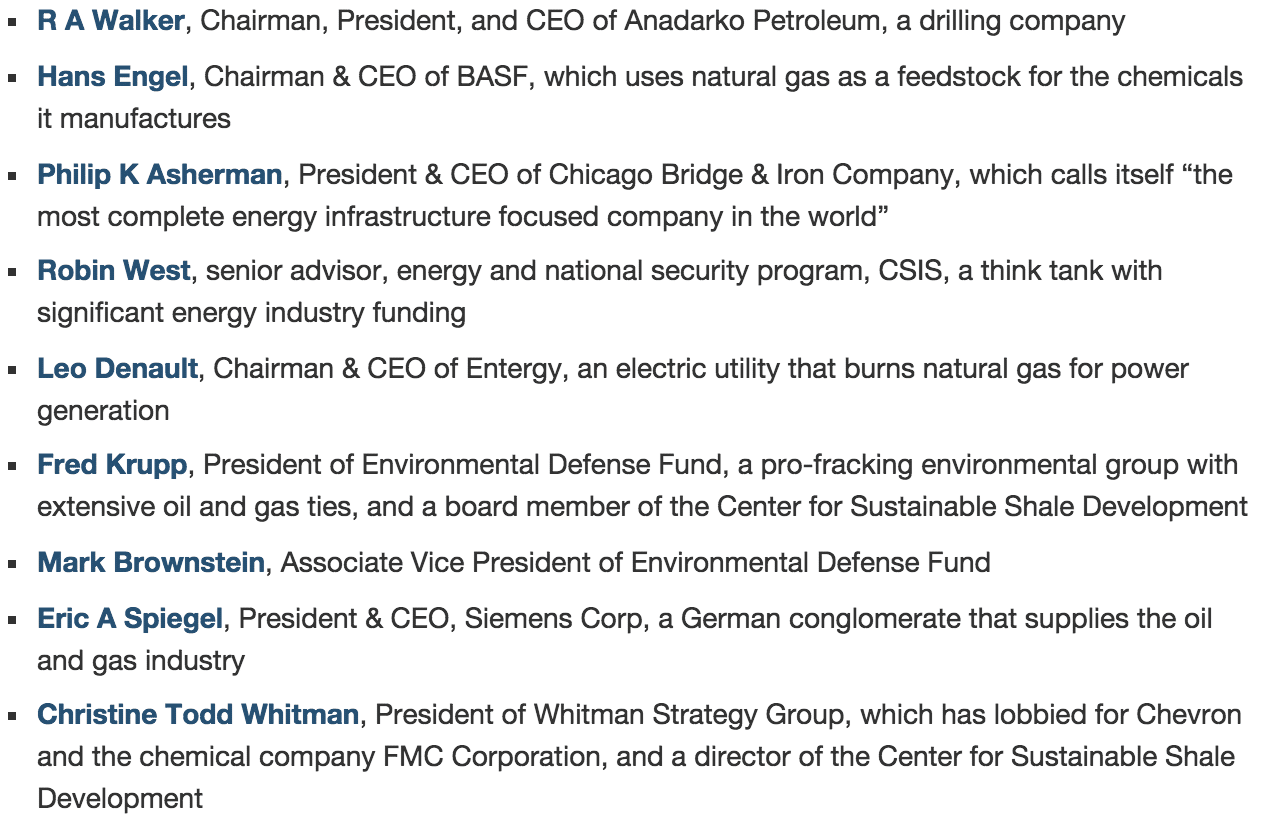The Public Accountability Initiative (PAI) has published a timely “back to school” report concluding that “frackademia” is alive and well at U.S. universities.
While only focusing on the people and money behind five recent studies, PAI‘s report sits within a much broader universe of research in its Frackademia Guide. The new report serves as an update of its February 2015 report titled, “Frackademia in Depth,” a title poking fun at hydraulic fracturing (“fracking”) front group Energy in Depth (which did not react kindly to its report).
As PAI points out in the new report’s introduction, the results of many recent science studies (some funded by the industry) have tarnished the reputation the industry spends so much money aiming to keep shiny. These include studies on fracking’s climate impacts and health impacts, environmental justice issues associated with fracking, among others.
Given that backdrop, the oil and gas industry has swept in and funded fresh studies whose outcomes were more favorable — aka “frackademia” — on topics ranging from fracking’s groundwater impacts, environmental impacts and economics.
Rick Berman, Tim Considine
Among the most compelling findings in the PAI investigation is that Rick “Dr. Evil” Berman, infamous for creating industry-funded front groups in many policy arenas via his consulting company Berman & Company, has gotten into the frackademia game.
The Berman connection becomes clear when investigating the men behind the curtain of a study published in September 2014 titled, “Economic and Environmental Impacts of Oil and Gas Development Offshore the Delmarva, Carolinas, and Georgia,” which makes the case for offshore drilling in the Atlantic. As PAI explained, it was funded by Interstate Policy Alliance, “a project of the Employment Policies Institute.”
What’s Employment Policies Institute? A Berman & Company front group.
“Though Berman and Company does not disclose the identities of its clients, the firm and its network of front groups have recently begun attacking fracking opponents and climate change regulations, suggesting it has been retained by the oil and gas industry,” explained PAI.
Just as important as Berman, in this case, was the author: Timothy Considine. Considine has been embroiled in other frackademia scandals, including a 2010 study eventually retracted and reissued by Penn State University after it was revealed that he didn’t disclose its funder, the Marcellus Shale Coalition lobbying organization.
He’s actually featured twice in the PAI report. The other recent Considine frackademia example came in the form of a study titled, “The Economics Impacts of the Proposed Natural Gas Severance Tax in Pennsylvania,” funded by the American Petroleum Institute.
That report predicted brutal impacts for Pennsylvania’s economy if its legislature adopts a severance tax for those fracking in the state’s Marcellus Shale.
Harvard, Syracuse
Harvard Business School and Syracuse University also feature prominently in PAI‘s report. The Harvard Business School example, in particular, serves as almost a perfect case study of how frackademia works in action.
“America’s Unconventional Energy Opportunity,” the title of Harvard’s report published jointly with Boston Consulting Group in June 2015, was featured in an opinion article by The New York Times writer David Brooks and in an uncritical article distributed to newspaper wires worldwide by Reuters.
Like a prominent 2013 Environmental Defense Fund-convened study on the climate change impacts of fracking, the steering committee of the Harvard study was a who’s-who of people with industry ties.
Image Credit: Public Accountability Initiative
As PAI pointed out, co-author “David Gee, a [Boston Consulting Group] managing partner, has worked for the energy industry for more than 30 years, with stints at Baker Hughes, PG&E, and AES Corporation.”
Another co-author not mentioned in PAI‘s report is Michael Porter, a faculty member of the Harvard Business School and formerly of the Monitor Group, a prominent consulting firm that went out of business in November 2012. Monitor Group has been involved in undisclosed pay-for-play before, conducting de facto shadow public relations work for former Libyan dictator Muammar Gaddafi.
Energy in Depth also stars in PAI‘s report in the form of a Syracuse University study on fracking and groundwater contamination that served as a counter of sorts to earlier Duke University fracking groundwater contamination studies.
That study was promoted by both EID and Natural Gas Now, the latter often featuring the work of Tom Shepstone, a former EID employee and current industry consultant. As it turns out, the study was covertly funded by Chesapeake Energy, though the co-authors claimed they had “no competing financial interest” in any entities potentially impacted by the study’s results.
Lead author Donald Siegel “had failed to disclose that, in addition to providing the data upon which his conclusions were based, oil and gas driller Chesapeake Energy had also funded the study and paid Siegel directly,” wrote PAI.
“Further, one of Siegel’s co-authors, Bert Smith, is a former Chesapeake employee who now works for Enviro Clean, a firm that consults for Chesapeake Energy. While Smith’s employment at Enviro Clean was noted when the study was published, the fact that his employer works for Chesapeake Energy was not.”
On at least one instance, PAI pointed out, Siegel actually wrote an article on EID‘s website.
Tobacco, Climate Denier Playbook
As highlighted many times in the report, journalists often take press releases from universities and write stories about these studies without following the money.
“Since the tobacco industry pioneered the use of compromised scientists to sow doubt about the harmful effects of smoking, corporations have employed a complex of industry-funded academic institutes, public relations outfits, lobbying firms, and independent consultants to provide seemingly independent support for their lines of business,” explained PAI.
PAI has done a great public service by naming names and doing the work journalists all too often fail to do to reveal conflicts of interest.
Photo Credit: Jannis Tobias Werner | Shutterstock
Subscribe to our newsletter
Stay up to date with DeSmog news and alerts








